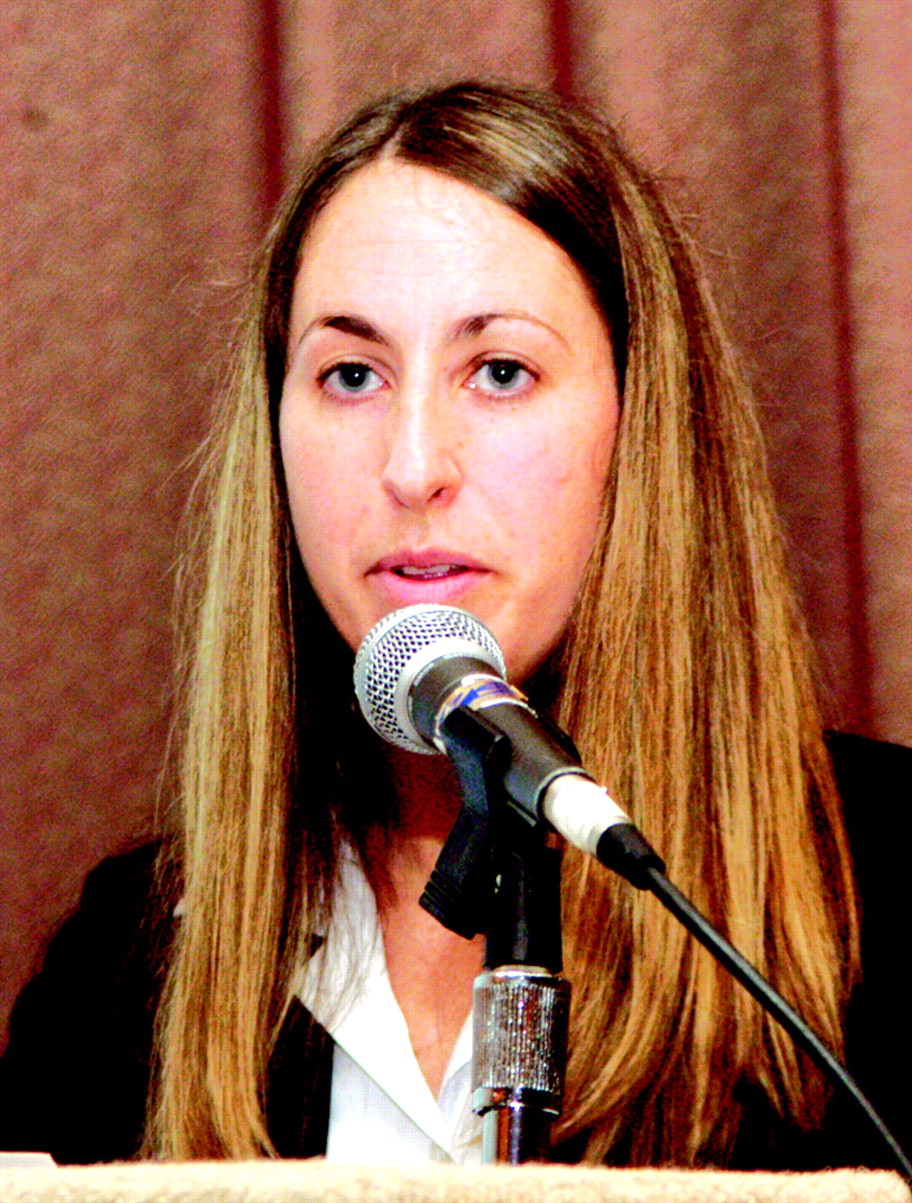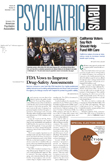For individuals who lack social supports and feel embarrassed about their mental health problems, the Internet seems like a harmless and even friendly place to turn for help. However, there are risks involved with seeking services online, according to a panel of residents who spoke at APA's Institute of Psychiatric Services in Atlanta in October.
The three residents are 2003-05 APA/Bristol-Myers Squibb Fellows, and as part of the fellowship experience they led a workshop at the institute on the risks and benefits of Internet-based mental health forums for patients and clinicians.
About 10 percent of health “message boards,” or Internet sites that allow people to post and respond to messages about a health topic, are related to mental health, according to Stephen Thielke, M.D., a PGY-4 resident at the University of Washington in Seattle.
He estimated that roughly 500,000 people a day log on to mental health–related message boards or “chat rooms,” in which messages are posted and answered on an Internet site in real time.
To provide a partial picture of people who use mental health message boards, Thielke cited findings from a study by Thomas Houston, M.D., M.P.H., which examined the mental health status and treatment of a group of 103 volunteers. Houston recruited the volunteers by posting requests for participation on five “Internet support groups,” or message boards and list serves for people with depression.
“The data showed that a lot of people who were using these groups overlapped with those receiving in-person care for depression,” Thielke said.
Houston found that 86 percent of the volunteers met criteria for depression (as measured by a score higher than 22 on the Center for Epidemiologic Studies Depression Scale), 92 percent were receiving antidepressants, and 65 percent were receiving some form of psychotherapy.
Almost 38 percent of the volunteers said they preferred online communication to in-person treatment.
Emotional support was the most commonly cited reason for using the message board, and social-support scores of volunteers were low, compared with depressed patients from another study who were not using Internet forums on depression.
People who post to the depression-related Internet forums “may be attempting to compensate for low levels of social support,” Thielke suggested.
According to Jennifer Rosenberg, M.D., a clinical fellow in psychiatry at Harvard Medical School, given the isolation that can result from having a mental illness, “it is not surprising that people use Internet forums to establish relationships and build a sense of community.”
Using a mental health message board or chat room may also unburden participants of the embarrassment they might experience from discussing sensitive topics with others in person.
The Internet allows those with certain mental illnesses, such as social phobia, to observe a “conversation” and take part only when they are ready, Rosenberg said.
Seeking online support for mental health problems has its benefits, such as convenience and accessibility, “It's hard for physicians to compete, since the computer is available in people's homes 24/7,” she noted.
However, such usage also has its drawbacks, Rosenberg stated.
Computer users can be victimized, either through marketing scams or sexual harassment by other people using the same Internet forum to communicate.
Sometimes the boundary between self and others may be blurred, Rosenberg said, and people can become distressed after reading about other's mental health problems.
Perhaps one of the most disturbing— and common—negative consequences of using Internet-based health forums is that users can get incorrect or even dangerous information online.
“It's been said that trying to get information on the Internet is like drinking from a fire hose, and you don't even know what the source of the water is,” Rosenberg said.
She cited a study by Thomas K. Lissman, M.D., who examined information listed on 20 popular depression-related Web sites and found that the quality of the information presented on the sites was poor.
“Almost half of the sites made no mention of medications, psychotherapy, or professional consultation as suggested treatments for depression,” noted the article, which appeared in the August 2001 Psychiatric Services.
People also may go online to seek “e-therapy” from professionals who advertise on the Internet as having medical degrees or Ph.D.s in psychology. Others just bill themselves as “counselors,” Rosenberg pointed out, so it is not clear what credentialing process any of them have passed.
Offering mental health services through e-mail or another Internet forum puts both patients and clinicians at risk, Rosenberg said, due to a number of potential problems—the inability of providers to be able to assess accurately a patient's mental status via computer and the potential loss of confidentiality for patients who send sensitive medical information via e-mail, for example.
Despite these potential pitfalls, “Don't we have an obligation to try to reach psychiatric populations who don't present to our offices?” asked Angela Leon Guerrero, M.D., chief resident in psychiatry at the University of Texas Southwestern Medical Center.
Internet-based mental health forums may be beneficial to patients who don't have access to mental health treatment because, for example, they live in rural areas, are agoraphobic, or may be biased against conventional treatment, she said.
Physicians in at least one survey found their that patients benefited from seeking medical information on the Internet.
Leon Guerrero cited data from a 2002 survey of 800 British physicians by Henry W. Potts, Ph.D., in which 85 percent of the doctors reported their patients benefited from the Internet. About 44 percent said that their patients encountered problems during Internet searches, such as misinformation.
To aid patients in the search for reliable medical information online, the University of Oxford in England has established DISCERN, a brief questionnaire that provides users with a “valid and reliable way of assessing the quality of written information on treatment choices for a health problem.”
The Web address for DISCERN is<www.discern.org.uk>.▪

